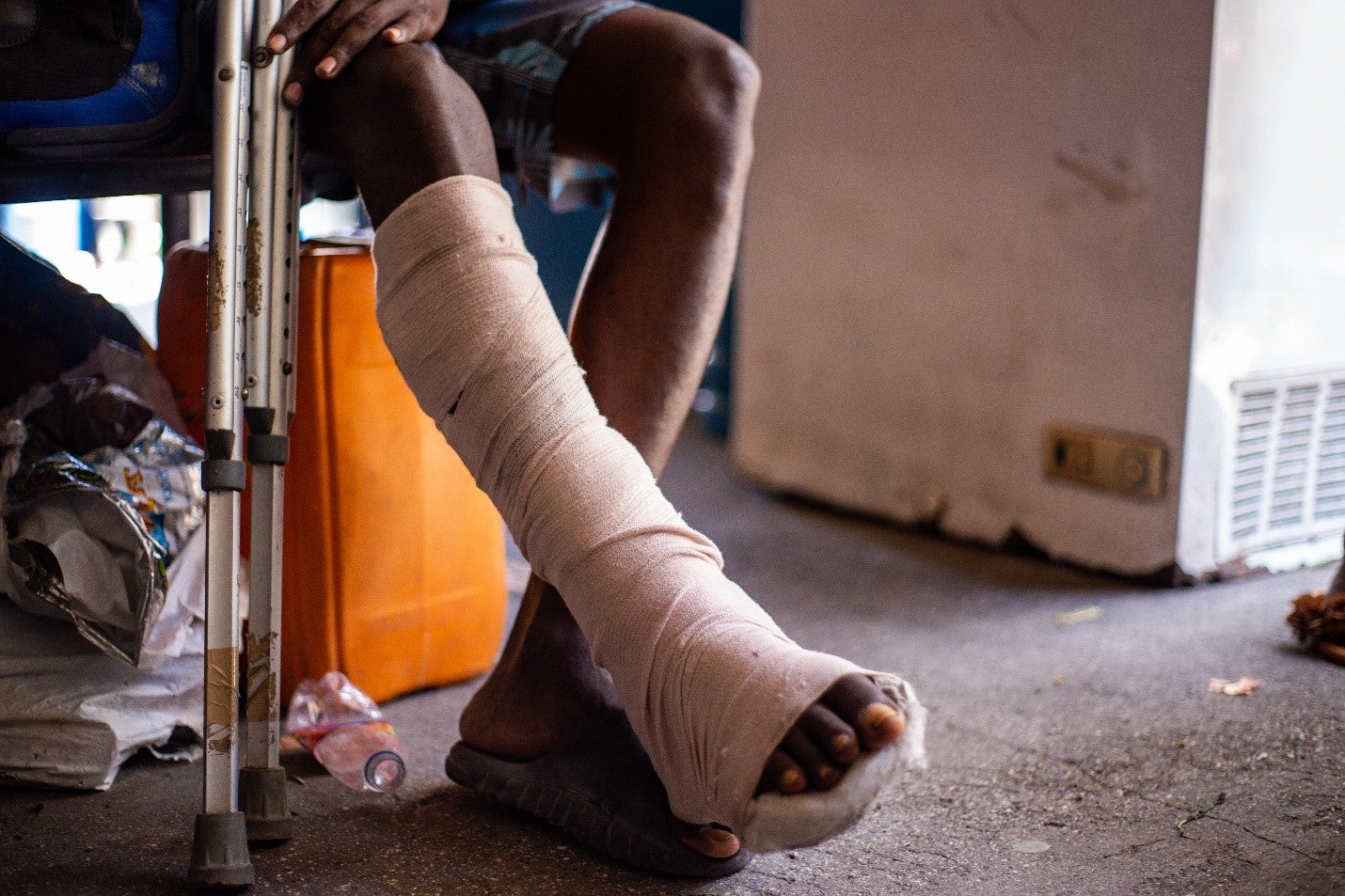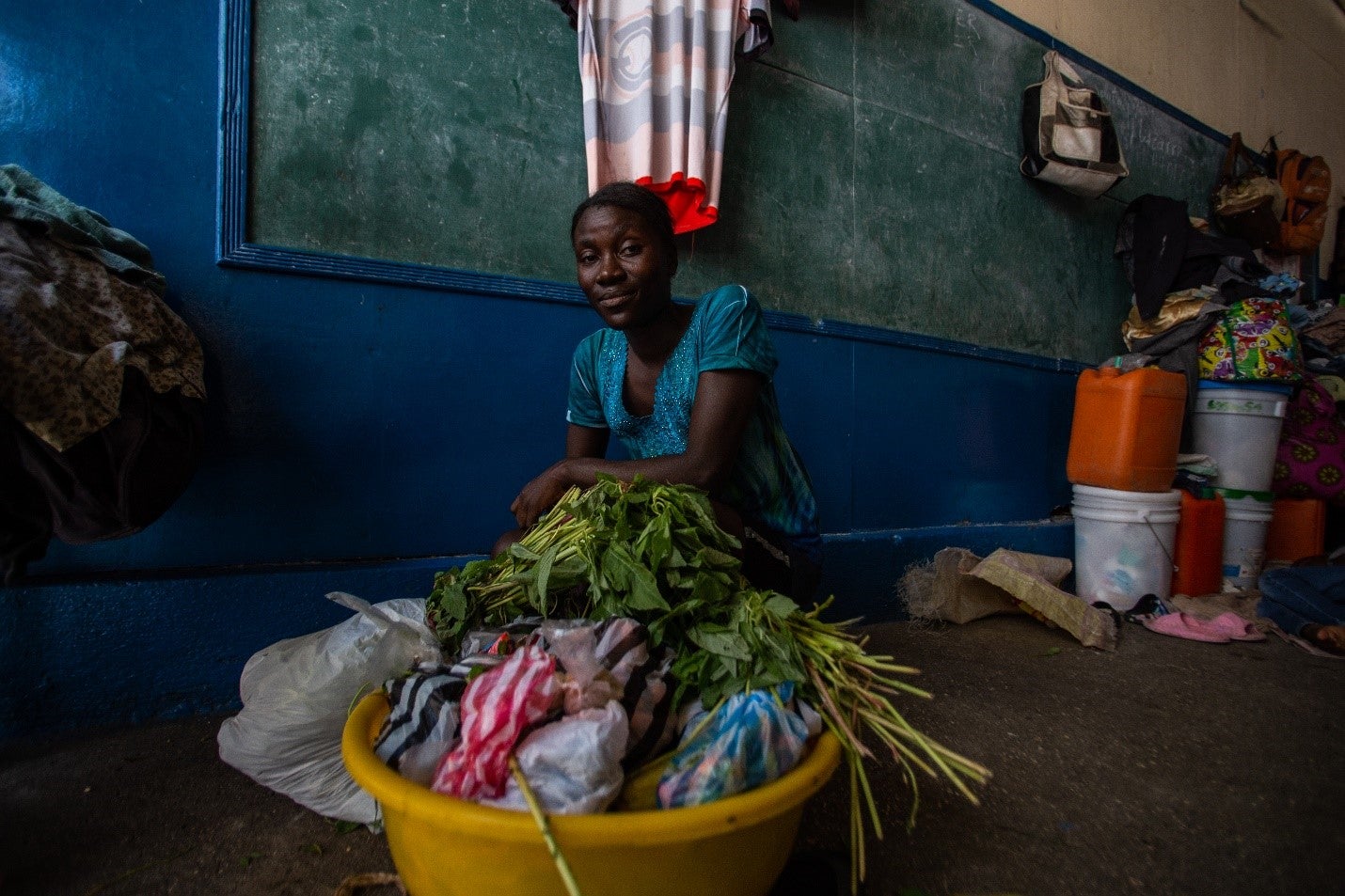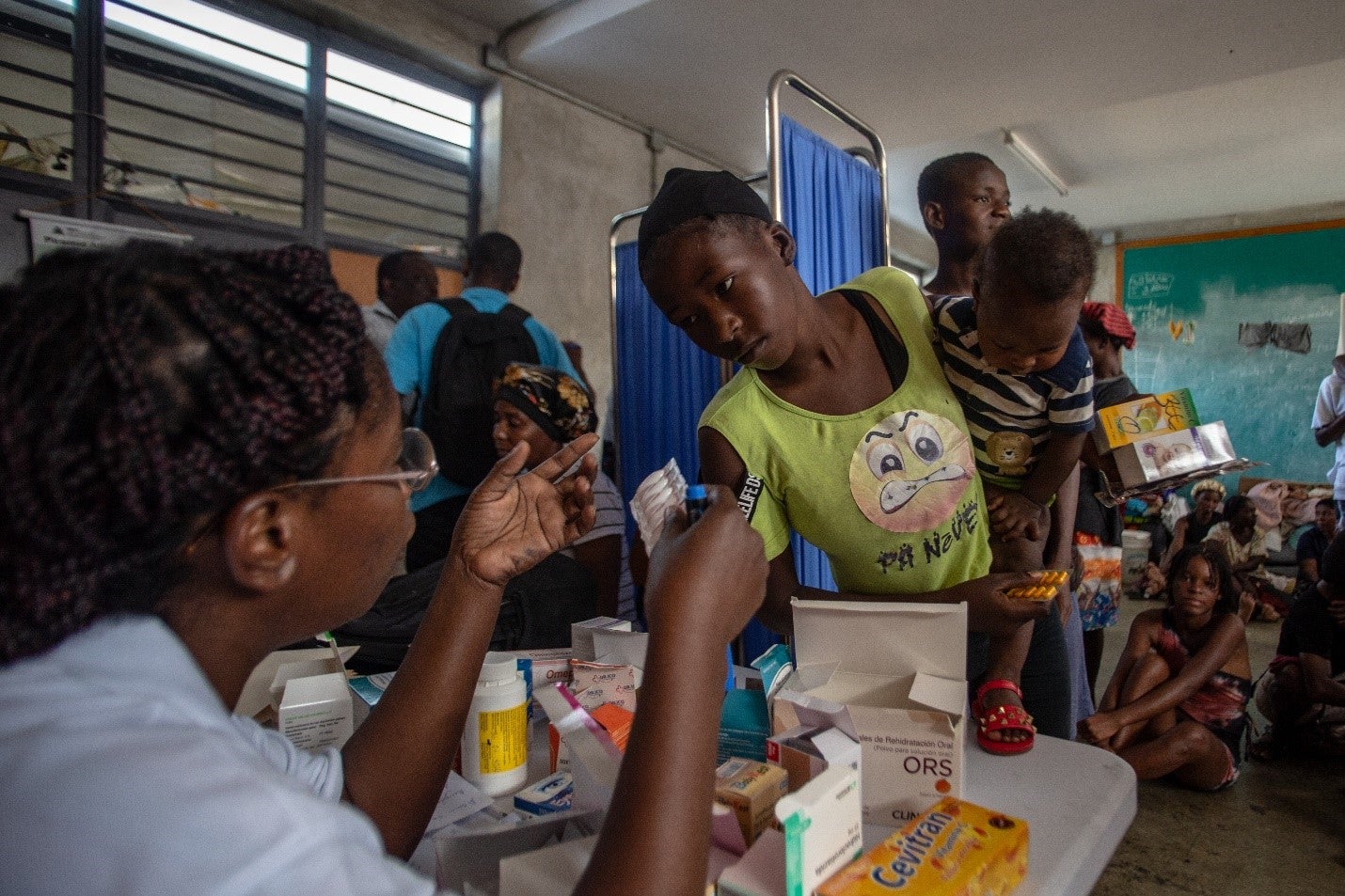
Port-au-Prince, April 22, 2024 (PAHO/WHO) – Since February 29, 2024, Haiti faces an intensified security crisis, marking a new stage in the violence that affects and leaves a health system in difficulty and complicity. Encore l’accès aux sonins pour des Millions d’Haïtiens. As is known, this crisis affects the most vulnerable, in particular the 86,040 people who live in one of the 84 displaced places in the metropolitan area of Port-au-Prince.
During the last month, PAHO/WHO in application to national and departmental health authorities a été en mesure de rétablir l’accès aux soins aux personnes vivant dans 22 de ces sites, où l’Organisation travaille de 2022.
The human cost of violence
At 67 years old, Marie Yliane, former traveling salesman, visits the site of Colbert Lochard déplaces, a public school that attends around 2,500 people a day. Originally from the Carrefour-Feuilles neighborhood, he was in the beginning, like a beaucoup of his voices, from the advance of a local gang: «Je n’avais jamais eu d’hypertension avant la crise actuelle. Mais les bruits de tirs résonnent dans ma tête. On est toujours oblige de fuer sans savoir où aller», explique-t-elle.
Marie Yliane is a patient of the mobile clinic put into operation by the health authorities of the Western department with the PAHO/WHO device and the financial provider of the Central Intervention Fund for Humanitarian Emergencies (CERF).
«La clinique mobile m’a beaucoup helpée today. Je ne me satais pas bien et étant donné que presque tous les hôpitaux sont fermés, un ami m’a conseillé d’y aller. Les médecins ont decouvert que mes symptômes: insomnia , maux de tête, fatigue, étaient dus à une hypertension arterielle J’ai reçu des Médicaments et j’ai remercié Dieu pour ces soins en ces temps chaotiques», at-elle ajouté.
Des blessures de guerre aux blessures de l’âme
«Avant la crisis, j’avais a magasin et une moto. Mais j’ai tout perdu lorsque j’ai reçu une balle perdue dans le pied,» explains John, 34, also originally from Carrefour-Feuilles. «Des bandits ont envahi mon quartier et j’ai été touchedé par une balle alors que j’essayais de m’enfuir.»
After saving on hospitalization costs, John goes to the mobile clinic for a free medical consultation.
Sabrina, a 28-year-old mother, is also admitted to the clinic where the mental health of her two young children is concerned. «One month children are traumatized by the noise of automatic weapons and do not support them. Je dois le protéger et le mettre à l’abri lorsqu’il ya une fusillade», explains-t-elle.
Reactivated after Wednesday, the mobile clinics have carried out more than 1000 medical consultations in several sites in the metropolitan region of Port-au-Prince.
They are essential to facilitate access to areas of displaced populations.
Composed of 6 doctors, 10 auxiliary nurses, 2 wise women, 3 psychologists and a double of psychosocial and community health agents, mobile clinics that offer general medicine, sexual and reproductive health services, as well as psychosocial consultations. Multipurpose community health workers also use the clinics to organize awareness-raising activities. L’OPS/WHO supports the initiative and provides a logistical and technical application, in addition to medical products.
Un défi sanitaire dans des sites surpeuplés
«Since we can return to the sites, our priority is to distribute hygienic and healthcare products to people who need assistance after several days,» explained Dr. Jean-Gilbert Ndong. . , coordinator of the PAHO/WHO emergency humanitarian response in displaced sites.
Surpeuplés et logés dans des structures inadaptés, les sites de displaced sont confrontés à des défis considérables, notamment le manque d’accès à l’eau potable et à l’assainissement. These conditions create fertile ground for the deterioration of residents’ health and the potential development of epidemics.
In addition to mobile clinics, epidemiological surveillance activities are also related to the work of the surveillance and response teams deployed at each site. The objective of this surveillance is to prevent the emergence of diseases that indicate cholera will reappear in the country after October 2022.
The emergency humanitarian response of PAHO/WHO in aid of health authorities
In addition to being applications by health authorities of the Western Department for displaced populations, PAHO/WHO also applied the Ministère de la Santé Publique et de la Population (MSPP) after the onset of the crisis through aux logistics Hôpitaux publics et autres institutions qui continuent à fournir des soins de santé in a complicated security environment. L’OPS/WHO also provides tons of medical equipment in various establishments, such as the La Paix University Hospital and the Doctors Without Borders Hospital, which bring most of the severely blessed patients.
L’OPS/WHO also supports the National Blood Transfusion Program in the place where the furniture and reagents are located, in addition to the National Ambulance Center ensuring the continuity of the sounds of the ambulances and the transport of the blessed in the place of the fuel.
L’OPS/WHO also helps three public hospitals in the domain of maternal health, mainly to improve access and reduce financial obstacles to children by caesarienne for women who need this procedure.










